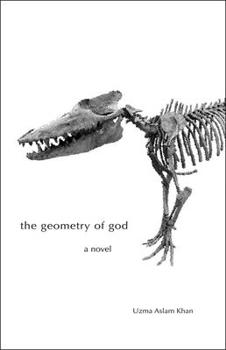The Geometry of God
Select Format
Select Condition 
Book Overview
Amal: the practical sister who digs up the "diamond key" that unlocks the mystery of Pakicetus, a whale-dog creature who once swam the ancient seas that are now Pakistan. Mehwish: the blind younger sister, who moves with the sun and music inside her and thinks in "cup lits not fully legal." Zahoor: their heretical grandfather, a scientist who loves variation and "vim zee" and his two granddaughters most of all. Noman: the young man who steps into a lecture hall, decides "their triangle needs a fourth point," and changes all their lives. These are the four shifting chambers who make the heart of The Geometry of God, the new novel from lauded Pakistani writer Uzma Aslam Khan. Through these vivid, contradictory, and original characters, Khan celebrates the complexities of familial and erotic love, the tug of curiosity and duty, the intersections of faith and longing. Her exuberant language draws from Urdu and Punjabi and invents one of its own for Mehwish, whose fractured English divides and slows and reveals. The Geometry of God is a novel one can read greedily, following these characters as their lives unfold against the backdrop of General Zia's Pakistan, where religious fundamentalism gains ground and the mujaheddin is funded by gem sales and the Americans. Or one can savor, as the sisters show us: digging as Amal does toward the novel's deepest questions about love and knowledge and faith, moving as Mehwish does to the rhythms of an abundant and original language.
Format:Paperback
Language:English
ISBN:1566567742
ISBN13:9781566567749
Release Date:September 2009
Publisher:Clockroot Books
Length:384 Pages
Weight:1.14 lbs.
Dimensions:0.9" x 5.4" x 7.7"












